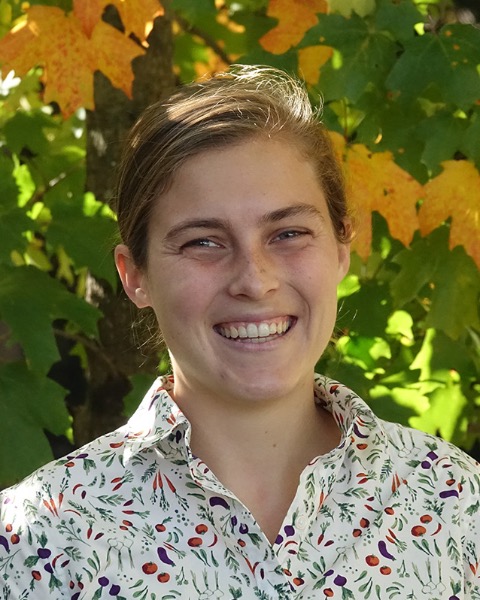Poster Display
Plant-Insect Ecosystems
D3439: Freezing herbivore cues to extend the window for research into plant-consumer interactions
- EP
Evan Preisser (he/him/his)
Professor
University of Rhode Island
Kingston, Rhode Island - ES
Eirette Santiago (she/her/hers)
Graduate Research Assistant
University of Rhode Island
Freeport, Maine 
Katherine Overstrum (she/her/hers)
Student
University of Rhode Island
Wallingford, Connecticut- BP
Brooke Pellegrini
Graduate Research Assistant
University of Rhode Island
Newport, Rhode Island
Presenting Author(s)
Co-Author(s)
Research into plant-herbivore interactions is often limited to the temporal window when the phenology of both species overlap. This limits research into species that are difficult/impossible to rear or for which rearing protocols have not been established. We have been exploring the effect of herbivore kairomones, non-attack-related substances produced by a consumer (i.e., feces or slug slime) that are detected by and benefit their prey, on the rate and speed of seed germination and subsequent seedling growth and defense. In our model system, the slug Arion subfuscus moves on a layer of locomotion slime that has been shown to increase Brassica nigra germination speed and plant defense at the cost of slower seedling growth. We isolate the effect of herbivory risk (i.e., A. subfuscus locomotion slime) on B. nigra seeds and seedlings by allowing slugs to move on moist soil that is subsequently applied to seeds and seedlings. In October 2023 we generated 100 replicate petri plates of mucus-covered soil (treatment) and another 100 soil-only (control) plates that we froze at -18C. After 40 days of freezing, we assessed how B. nigra germination was affected by thawed treatment soil, fresh treatment soil, and control soil. Thawed treatment soil had the same effect on germination as fresh soil, with seeds in both treatments germinating significantly faster than in the control. This assay was repeated after 74, 137, and 157 days, with broadly similar results: thawed treatment soil altered germination despite being frozen for more than five months.

.png)
